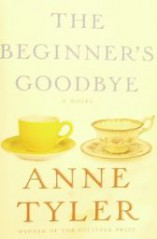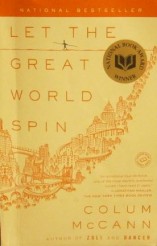No blog about books would be complete without a year-end “best of” list. For me, the best are “books that I am most likely to read again.” For fiction, I predict that I will turn to Donna Tart’s The Goldfinch many times in the years to come. For non-fiction/memoir, I’ve … Read More
Category: fiction
“She’d realized that she was now, always had been, and always would be a watcher…”
 I admire young novelists who have something interesting to say about the world. I enjoy middle-aged novelists who share their complex lives with us. But most of all, I cheer for writers like Martha Woodroof, who, at age 67, has published her first novel. A self-described “old hippie,” … Read More
I admire young novelists who have something interesting to say about the world. I enjoy middle-aged novelists who share their complex lives with us. But most of all, I cheer for writers like Martha Woodroof, who, at age 67, has published her first novel. A self-described “old hippie,” … Read More
“We rise again in the grass. In flowers. In songs.”
 Anthony Doerr believes that literary writers should “strive toward complexity, toward questions, and away from certainty, away from stereotype.” This novel, which is a page-turner, one worth getting up early to read, demonstrates that he follows his own advice. Set in France and Germany during 1934-2014, focusing mostly on … Read More
Anthony Doerr believes that literary writers should “strive toward complexity, toward questions, and away from certainty, away from stereotype.” This novel, which is a page-turner, one worth getting up early to read, demonstrates that he follows his own advice. Set in France and Germany during 1934-2014, focusing mostly on … Read More
“Skip the beginning. Start in the middle.”
 What happens when a novel begins in the middle of the story? There is a certain awkwardness. You can anticipate that there will be a lot of skipping around, which requires concentration. Is it worth it? In the case of We Are All Completely Beside Ourselves, the answer is yes. … Read More
What happens when a novel begins in the middle of the story? There is a certain awkwardness. You can anticipate that there will be a lot of skipping around, which requires concentration. Is it worth it? In the case of We Are All Completely Beside Ourselves, the answer is yes. … Read More
“We are, I know not why, double within us.”
 Mark Haddon’s extraordinary novel The Red House appears to be built on the ideas and style of the essays written by Michel de Montaigne in the 1500s, and I can’t think of a better, more inventive, choice. As we see with the “double within ourselves” line, he quotes Montaigne directly, … Read More
Mark Haddon’s extraordinary novel The Red House appears to be built on the ideas and style of the essays written by Michel de Montaigne in the 1500s, and I can’t think of a better, more inventive, choice. As we see with the “double within ourselves” line, he quotes Montaigne directly, … Read More
“Which way lies truth, in the end? In power, or in Art?”
 Novelists make assumptions about their readers’ interest in technical details, whether they’re writing about sabotage, romance or philosophy. The Elegance of the Hedgehog is written by a philosophy professor who assumes we want to know the technical details of her two main character’s struggle to find a philosophy of life … Read More
Novelists make assumptions about their readers’ interest in technical details, whether they’re writing about sabotage, romance or philosophy. The Elegance of the Hedgehog is written by a philosophy professor who assumes we want to know the technical details of her two main character’s struggle to find a philosophy of life … Read More
“Till this moment, I never knew myself.”
 When Pride and Prejudice turned 200 years old last year, the Guardian ran a wonderful collection of short pieces about the main characters by a variety of writers, who said the sorts of thing that literary people say when they are out partying: Mr. Bennett is a bully, Elizabeth doesn’t … Read More
When Pride and Prejudice turned 200 years old last year, the Guardian ran a wonderful collection of short pieces about the main characters by a variety of writers, who said the sorts of thing that literary people say when they are out partying: Mr. Bennett is a bully, Elizabeth doesn’t … Read More
“It was terribly hot that summer Mr. Robertson left town, and for a long while the river seemed dead.”
What should the first sentence in a great novel do? Set the tone, establish the location and perhaps introduce the main character? The first sentence in Amy and Isabelle by Elizabeth Strout does more than that. It gives us the dying river image, which prepares us for the idea … Read More
“The strangest thing about my wife’s return from the dead was how other people reacted.”

Oh, how I love an unreliable narrator! Our quote is the first sentence of the novel, and it’s clearly a flat-out lie. (The strangest thing about anyone’s return from the dead is that it happened — of course people thought it’s strange.) So, if the main character tells us in … Read More
“The menu, like love, was full of delicate, gruesome things — cheeks, tongues, thymus glands.”
 No writer can make me laugh harder but wince longer than Lorrie Moore. Here is a sample of her humor: “Mike’s friends, however, tended to be tense, intellectually earnest Protestants who drove new, metallic-hued cars and who within five minutes of light conversation could be counted on at … Read More
No writer can make me laugh harder but wince longer than Lorrie Moore. Here is a sample of her humor: “Mike’s friends, however, tended to be tense, intellectually earnest Protestants who drove new, metallic-hued cars and who within five minutes of light conversation could be counted on at … Read More
“We can’t chose what we want and what we don’t want and that’s the hard lonely truth.”
At 771 pages, this is a long novel. Is it worth it? Many of the 57 commentators on the Kirkus review didn’t think so. However, I love the way Tartt develops big themes. And she has sentences that are works of art. The NY Times review, written by Stephen … Read More
“I felt that this was my last moment to reach out and understand something of the world.”
 Peter Taylor, winner of the Pulitzer Prize and the Penn Faulkner Award, is virtually unknown today. In a 1985 review, the New York Times said: “His narrative method is to hover over the action, to digress from it, to explore byways and relationships, to speculate on alternative possibilities – … Read More
Peter Taylor, winner of the Pulitzer Prize and the Penn Faulkner Award, is virtually unknown today. In a 1985 review, the New York Times said: “His narrative method is to hover over the action, to digress from it, to explore byways and relationships, to speculate on alternative possibilities – … Read More
“It was the kind of question that starts a landslide in the mind.”
 What was the question? Was it profound? Shocking? Revealing? Turns out, it’s all of these, and it’s laced with British humor. The question was, “Do we need a cup of tea?” This comes next: “She sounded puzzled and distressed and I began to realize that my question had struck at … Read More
What was the question? Was it profound? Shocking? Revealing? Turns out, it’s all of these, and it’s laced with British humor. The question was, “Do we need a cup of tea?” This comes next: “She sounded puzzled and distressed and I began to realize that my question had struck at … Read More
“We say of some things that they can’t be forgiven, or that we will never forgive ourselves. But we do — we do it all the time.”
 These are the final sentences in Alice Munro’s collection of short stories, Dear Life, which won the Nobel Prize. I believe that the character is lying and that she wishes she could forgive herself. I’m sure that other readers have come to different conclusions. These stories are complex, with characters … Read More
These are the final sentences in Alice Munro’s collection of short stories, Dear Life, which won the Nobel Prize. I believe that the character is lying and that she wishes she could forgive herself. I’m sure that other readers have come to different conclusions. These stories are complex, with characters … Read More



